Twelve games across four frenetic days, 39 goals, three more own goals, more Ronaldo records, eight teams knocked out, sixteen through to the knockout stage – that was the third group stage in summary. And before we move on to the tournament proper, there’s a chance to momentarily catch our collective breaths and look back on the footballing week that was.
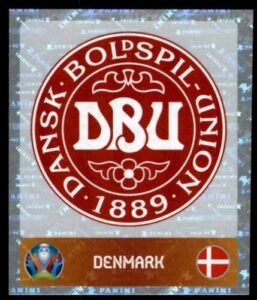
 Team performances: With games played simultaneously for matters of fairness in the final group stage, it doesn’t make for the best viewing for fans, or at least for those with neither the time or inclination to record games and watch each one, i.e. me. So some big decisions needed to be made – Finland v Belgium or Russia v Denmark, Sweden v Poland or Slovakia v Spain, and at what point to switch over from the England game. Needless to say, there was action that was missed, but, by and large, each of the final group games did its best to satisfy viewers – not least the final day’s offerings, with a record haul of 18 goals scored in a single day across the four matches – if only every matchday was like that? When it comes to best team performances, it’s hard to look past Spain’s 5-0 trouncing of Slovakia, whilst Italy, Belgium and the Netherlands all maintained their unblemished record – Italy’s made all the more impressive by the fact they had eight changes to their usual starting XI and even managed to sub their goalie in the dying minutes and didn’t look for one second diminished. Thank goodness Italy B team didn’t enter as a separate entity. However, my standout team performances of the final round have to go to a couple of sides who came out of the group wilderness to qualify at the last second, notably Switzerland, but, even more impressively, Denmark, who on the back of two weeks of heartache and a tally of zero points pulled through in emphatic, determined fashion in their 4-1 demolition of Russia – let’s be honest, we’re all Danish fans to some degree at the moment.
Team performances: With games played simultaneously for matters of fairness in the final group stage, it doesn’t make for the best viewing for fans, or at least for those with neither the time or inclination to record games and watch each one, i.e. me. So some big decisions needed to be made – Finland v Belgium or Russia v Denmark, Sweden v Poland or Slovakia v Spain, and at what point to switch over from the England game. Needless to say, there was action that was missed, but, by and large, each of the final group games did its best to satisfy viewers – not least the final day’s offerings, with a record haul of 18 goals scored in a single day across the four matches – if only every matchday was like that? When it comes to best team performances, it’s hard to look past Spain’s 5-0 trouncing of Slovakia, whilst Italy, Belgium and the Netherlands all maintained their unblemished record – Italy’s made all the more impressive by the fact they had eight changes to their usual starting XI and even managed to sub their goalie in the dying minutes and didn’t look for one second diminished. Thank goodness Italy B team didn’t enter as a separate entity. However, my standout team performances of the final round have to go to a couple of sides who came out of the group wilderness to qualify at the last second, notably Switzerland, but, even more impressively, Denmark, who on the back of two weeks of heartache and a tally of zero points pulled through in emphatic, determined fashion in their 4-1 demolition of Russia – let’s be honest, we’re all Danish fans to some degree at the moment.
 Individual performances: In terms of individual performances, Xherdan Shaqiri, Luka Modric and Emil Forsberg all made the headlines for impressive outings that largely sealed the fates of their respective teams, but Marco Verratti’s return from a knee injury in Italy’s 1-0 victory over Wales was a masterclass in midfield magnificence. However, whilst Verratti may be the head’s choice, the heart’s choice can only be Bukayo Saka. Starting for the first time in a major tournament, Saka looked completely at home, or rather he looked like he was showing everyone else round his home – right, guys, let me give you a tour, here’s the back door, through you go, Jack, that’s it Raheem, after you – 1-0. Grealish too made an impressive first start in the tournament, but there was no getting away from the overall effect of Saka’s energy, positivity and forward thrust, which gave England added impetus and was just what Southgate ordered. Although Saka’s now given Southgate a new headache in his forward line, as if having to choose between the likes of Sterling and Rashford, Mount and Grealish isn’t enough, Saka made himself the kid you can’t ignore. Mind you, it’s not a bad headache to have – certainly better than the one Danilo must have woken up with after Hugo Lloris’ best Anthony Joshua impersonation.
Individual performances: In terms of individual performances, Xherdan Shaqiri, Luka Modric and Emil Forsberg all made the headlines for impressive outings that largely sealed the fates of their respective teams, but Marco Verratti’s return from a knee injury in Italy’s 1-0 victory over Wales was a masterclass in midfield magnificence. However, whilst Verratti may be the head’s choice, the heart’s choice can only be Bukayo Saka. Starting for the first time in a major tournament, Saka looked completely at home, or rather he looked like he was showing everyone else round his home – right, guys, let me give you a tour, here’s the back door, through you go, Jack, that’s it Raheem, after you – 1-0. Grealish too made an impressive first start in the tournament, but there was no getting away from the overall effect of Saka’s energy, positivity and forward thrust, which gave England added impetus and was just what Southgate ordered. Although Saka’s now given Southgate a new headache in his forward line, as if having to choose between the likes of Sterling and Rashford, Mount and Grealish isn’t enough, Saka made himself the kid you can’t ignore. Mind you, it’s not a bad headache to have – certainly better than the one Danilo must have woken up with after Hugo Lloris’ best Anthony Joshua impersonation.
 Goals: And, as for goals, well, take your pick from the 39 recorded across the final group games. There was Andreas Christensen’s thunder-blaster against Russia, Luka Modric’s strike of beauty against Scotland, Ferran Torres’ cheeky flick against Slovakia and Xherdan Shaqiri’s curled finished against Turkey. Sadly, Martin Dubravka and Juraj Kucka both made the showreel, but for the wrong reasons – both scoring own goals in Slovakia’s 5-0 defeat to Spain – only the second time that has ever happened in Euros history, the first being in Portugal’s 4-2 loss to Germany – like they, say, you wait ages for a bus and two come along at once, though I suspect Dubravka, Kucka, Dias and Guerreiro could have done without these particular buses. It certainly keeps Own Goals’ tenure at the top of the Golden Boot chart alive and kicking, and whilst Emil Forsberg, Romelu Lukaku and Gini Wijnaldum make up the chasing pack, one man currently leads the way. No prizes for guessing who – Ronaldo, of course. And, on the topic of Ronaldo, it wouldn’t be a week at the Euros without another Ronaldo record. In fact, it’s like a game within a game, as he picks off decades-old records as if they’re fluff. This week’s record included that of becoming top scorer at the Euros and World Cup combined, with his twentieth (and subsequently twenty-first) goals surpassing the nineteen of Miroslav Klose. His second penalty against France also saw his international goals tally reach the hallowed 109 of Ali Daei, needing just one more to become the best international goalscorer of all time. Portugal face a tough test against Belgium next and potentially Italy in the quarterfinals and France in the semi-finals if they are to go all the way and retain their European crowns, but if they’re going to do it, you wouldn’t count against Ronaldo being the man to deliver the goals.
Goals: And, as for goals, well, take your pick from the 39 recorded across the final group games. There was Andreas Christensen’s thunder-blaster against Russia, Luka Modric’s strike of beauty against Scotland, Ferran Torres’ cheeky flick against Slovakia and Xherdan Shaqiri’s curled finished against Turkey. Sadly, Martin Dubravka and Juraj Kucka both made the showreel, but for the wrong reasons – both scoring own goals in Slovakia’s 5-0 defeat to Spain – only the second time that has ever happened in Euros history, the first being in Portugal’s 4-2 loss to Germany – like they, say, you wait ages for a bus and two come along at once, though I suspect Dubravka, Kucka, Dias and Guerreiro could have done without these particular buses. It certainly keeps Own Goals’ tenure at the top of the Golden Boot chart alive and kicking, and whilst Emil Forsberg, Romelu Lukaku and Gini Wijnaldum make up the chasing pack, one man currently leads the way. No prizes for guessing who – Ronaldo, of course. And, on the topic of Ronaldo, it wouldn’t be a week at the Euros without another Ronaldo record. In fact, it’s like a game within a game, as he picks off decades-old records as if they’re fluff. This week’s record included that of becoming top scorer at the Euros and World Cup combined, with his twentieth (and subsequently twenty-first) goals surpassing the nineteen of Miroslav Klose. His second penalty against France also saw his international goals tally reach the hallowed 109 of Ali Daei, needing just one more to become the best international goalscorer of all time. Portugal face a tough test against Belgium next and potentially Italy in the quarterfinals and France in the semi-finals if they are to go all the way and retain their European crowns, but if they’re going to do it, you wouldn’t count against Ronaldo being the man to deliver the goals.
 Moment: All players, I imagine, dream of their final international game ending with them sealing a win and lifting a trophy. Sadly, players all too often bow out with a whimper, if they get beyond the subs bench, that is. So, it was poignant to see one man get a deserved farewell, albeit without the goals and the trophy, when North Macedonian captain, talisman and general lynchpin, Goran Pandev brought time on his twenty-year international career against the Netherlands, earning a guard of honour as he was subbed off in the 69th minute. Pandev is the nation’s top scorer and appearance maker. He became the first man to captain his side in a major international tournament at this Euros and the first man to score a goal at a tournament. Aged 37, this was both Pandev’s first and last tournament and whilst three defeats from three may not be the dream ending, leading his nation out in the biggest tournament in Europe isn’t a bad way to sign off. And who doesn’t love a guard of honour. I may have had something in my eye as I watched on, but it definitely wasn’t a tear.
Moment: All players, I imagine, dream of their final international game ending with them sealing a win and lifting a trophy. Sadly, players all too often bow out with a whimper, if they get beyond the subs bench, that is. So, it was poignant to see one man get a deserved farewell, albeit without the goals and the trophy, when North Macedonian captain, talisman and general lynchpin, Goran Pandev brought time on his twenty-year international career against the Netherlands, earning a guard of honour as he was subbed off in the 69th minute. Pandev is the nation’s top scorer and appearance maker. He became the first man to captain his side in a major international tournament at this Euros and the first man to score a goal at a tournament. Aged 37, this was both Pandev’s first and last tournament and whilst three defeats from three may not be the dream ending, leading his nation out in the biggest tournament in Europe isn’t a bad way to sign off. And who doesn’t love a guard of honour. I may have had something in my eye as I watched on, but it definitely wasn’t a tear.
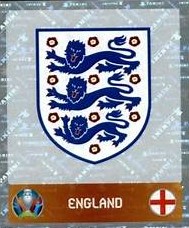 England: And so to England, and it has to be said on the back of the Scotland game, the mood of the nation had taken a decided turn for the worst, with fans even beginning to worry whether the Three Lions would get out of the group. However, such is the fickle fate of football that even before a ball was kicked in England’s final decisive game against the Czech Republic, they had qualified, thanks to other results. Yet, it was still decisive in determining England’s next opponents and talk prior to the game turned to the question of whether England should go for the win and top the group or play out for a draw and a second-placed finish, on the basis of a possibly easier route to the final. As if football was that easy to determine. With a win clearly all that was in Southgate and his team’s plans, England secured a 1-0 victory, a top-of-the-table finish and a Round of 16 game at Wembley. What was yet to be decided, however, were their opponents. As it stood, going into Group F’s final fixtures, Germany would be England’s nemesis once more, but there were a whole 90 minutes to play in both a Portugal and France and Germany and Hungary game that could reset the whole complexion of the group. In fact, the complexion didn’t change at all, despite at various points in the 90 minutes, England set to face Portugal, France, Portugal again, Hungary, Portugal once more, Germany, Portugal for a fourth time, until eventually an equalising goal from Goretzka brought everything back to where it had been 90 minutes previously. But it was a rollercoaster for those 90 minutes, as England hopes rallied as Hungary secured second-place, dive-bombed on France and, in true English fashion, ended up in the inevitable outcome of facing Germany. It could be worse, but it could be better, and whilst it’s appealing to say Germany aren’t at their best, that in itself is worrying, as they continue to get the job done regardless. And what if we had finished second you ask, well, there would have been the small matter of a game against Spain in Copenhagen, a possible quarterfinal against France in St Petersburg, before a meeting with Belgium, Portugal, Italy or Austria in the semi-final. Definitely a walk in the park then.
England: And so to England, and it has to be said on the back of the Scotland game, the mood of the nation had taken a decided turn for the worst, with fans even beginning to worry whether the Three Lions would get out of the group. However, such is the fickle fate of football that even before a ball was kicked in England’s final decisive game against the Czech Republic, they had qualified, thanks to other results. Yet, it was still decisive in determining England’s next opponents and talk prior to the game turned to the question of whether England should go for the win and top the group or play out for a draw and a second-placed finish, on the basis of a possibly easier route to the final. As if football was that easy to determine. With a win clearly all that was in Southgate and his team’s plans, England secured a 1-0 victory, a top-of-the-table finish and a Round of 16 game at Wembley. What was yet to be decided, however, were their opponents. As it stood, going into Group F’s final fixtures, Germany would be England’s nemesis once more, but there were a whole 90 minutes to play in both a Portugal and France and Germany and Hungary game that could reset the whole complexion of the group. In fact, the complexion didn’t change at all, despite at various points in the 90 minutes, England set to face Portugal, France, Portugal again, Hungary, Portugal once more, Germany, Portugal for a fourth time, until eventually an equalising goal from Goretzka brought everything back to where it had been 90 minutes previously. But it was a rollercoaster for those 90 minutes, as England hopes rallied as Hungary secured second-place, dive-bombed on France and, in true English fashion, ended up in the inevitable outcome of facing Germany. It could be worse, but it could be better, and whilst it’s appealing to say Germany aren’t at their best, that in itself is worrying, as they continue to get the job done regardless. And what if we had finished second you ask, well, there would have been the small matter of a game against Spain in Copenhagen, a possible quarterfinal against France in St Petersburg, before a meeting with Belgium, Portugal, Italy or Austria in the semi-final. Definitely a walk in the park then.

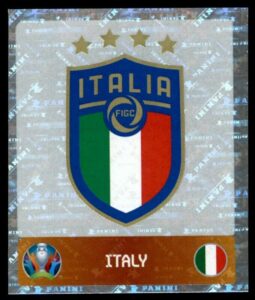 Who has impressed? Standout for me have been Italy – positive, fluid and solid at the back. They currently are my favourites. But the trouble with knockout football is that a big defensive display from the opposition in ninety minutes and extra-time and then anything can happen in the penalty shoot-out. Spain showed what they can do in their final game, and you can never write off a side that has Ronaldo in it, although Portugal have a tough tie up against Belgium. World Champions France weren’t at their fluid best, but in a difficult group emerged top and will more than fancy their chances against Switzerland.
Who has impressed? Standout for me have been Italy – positive, fluid and solid at the back. They currently are my favourites. But the trouble with knockout football is that a big defensive display from the opposition in ninety minutes and extra-time and then anything can happen in the penalty shoot-out. Spain showed what they can do in their final game, and you can never write off a side that has Ronaldo in it, although Portugal have a tough tie up against Belgium. World Champions France weren’t at their fluid best, but in a difficult group emerged top and will more than fancy their chances against Switzerland.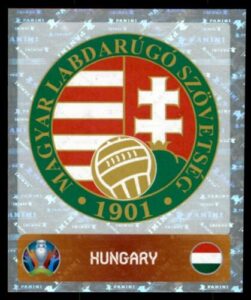 Of those leaving the tournament, the exit of Turkey and Poland must be considered shocks, whilst it was always going to be difficult for debutants Finland and North Macedonia. Scotland will be disappointed that they slipped out of the competition with a whimper rather than a bang, scoring just once and collecting just a solitary point. And Hungary were just six minutes from going through at the expense of Germany.
Of those leaving the tournament, the exit of Turkey and Poland must be considered shocks, whilst it was always going to be difficult for debutants Finland and North Macedonia. Scotland will be disappointed that they slipped out of the competition with a whimper rather than a bang, scoring just once and collecting just a solitary point. And Hungary were just six minutes from going through at the expense of Germany.
 Team performances: With games played simultaneously for matters of fairness in the final group stage, it doesn’t make for the best viewing for fans, or at least for those with neither the time or inclination to record games and watch each one, i.e. me. So some big decisions needed to be made – Finland v Belgium or Russia v Denmark, Sweden v Poland or Slovakia v Spain, and at what point to switch over from the England game. Needless to say, there was action that was missed, but, by and large, each of the final group games did its best to satisfy viewers – not least the final day’s offerings, with a record haul of 18 goals scored in a single day across the four matches – if only every matchday was like that? When it comes to best team performances, it’s hard to look past Spain’s 5-0 trouncing of Slovakia, whilst Italy, Belgium and the Netherlands all maintained their unblemished record – Italy’s made all the more impressive by the fact they had eight changes to their usual starting XI and even managed to sub their goalie in the dying minutes and didn’t look for one second diminished. Thank goodness Italy B team didn’t enter as a separate entity. However, my standout team performances of the final round have to go to a couple of sides who came out of the group wilderness to qualify at the last second, notably Switzerland, but, even more impressively, Denmark, who on the back of two weeks of heartache and a tally of zero points pulled through in emphatic, determined fashion in their 4-1 demolition of Russia – let’s be honest, we’re all Danish fans to some degree at the moment.
Team performances: With games played simultaneously for matters of fairness in the final group stage, it doesn’t make for the best viewing for fans, or at least for those with neither the time or inclination to record games and watch each one, i.e. me. So some big decisions needed to be made – Finland v Belgium or Russia v Denmark, Sweden v Poland or Slovakia v Spain, and at what point to switch over from the England game. Needless to say, there was action that was missed, but, by and large, each of the final group games did its best to satisfy viewers – not least the final day’s offerings, with a record haul of 18 goals scored in a single day across the four matches – if only every matchday was like that? When it comes to best team performances, it’s hard to look past Spain’s 5-0 trouncing of Slovakia, whilst Italy, Belgium and the Netherlands all maintained their unblemished record – Italy’s made all the more impressive by the fact they had eight changes to their usual starting XI and even managed to sub their goalie in the dying minutes and didn’t look for one second diminished. Thank goodness Italy B team didn’t enter as a separate entity. However, my standout team performances of the final round have to go to a couple of sides who came out of the group wilderness to qualify at the last second, notably Switzerland, but, even more impressively, Denmark, who on the back of two weeks of heartache and a tally of zero points pulled through in emphatic, determined fashion in their 4-1 demolition of Russia – let’s be honest, we’re all Danish fans to some degree at the moment. Individual performances: In terms of individual performances, Xherdan Shaqiri, Luka Modric and Emil Forsberg all made the headlines for impressive outings that largely sealed the fates of their respective teams, but Marco Verratti’s return from a knee injury in Italy’s 1-0 victory over Wales was a masterclass in midfield magnificence. However, whilst Verratti may be the head’s choice, the heart’s choice can only be Bukayo Saka. Starting for the first time in a major tournament, Saka looked completely at home, or rather he looked like he was showing everyone else round his home – right, guys, let me give you a tour, here’s the back door, through you go, Jack, that’s it Raheem, after you – 1-0. Grealish too made an impressive first start in the tournament, but there was no getting away from the overall effect of Saka’s energy, positivity and forward thrust, which gave England added impetus and was just what Southgate ordered. Although Saka’s now given Southgate a new headache in his forward line, as if having to choose between the likes of Sterling and Rashford, Mount and Grealish isn’t enough, Saka made himself the kid you can’t ignore. Mind you, it’s not a bad headache to have – certainly better than the one Danilo must have woken up with after Hugo Lloris’ best Anthony Joshua impersonation.
Individual performances: In terms of individual performances, Xherdan Shaqiri, Luka Modric and Emil Forsberg all made the headlines for impressive outings that largely sealed the fates of their respective teams, but Marco Verratti’s return from a knee injury in Italy’s 1-0 victory over Wales was a masterclass in midfield magnificence. However, whilst Verratti may be the head’s choice, the heart’s choice can only be Bukayo Saka. Starting for the first time in a major tournament, Saka looked completely at home, or rather he looked like he was showing everyone else round his home – right, guys, let me give you a tour, here’s the back door, through you go, Jack, that’s it Raheem, after you – 1-0. Grealish too made an impressive first start in the tournament, but there was no getting away from the overall effect of Saka’s energy, positivity and forward thrust, which gave England added impetus and was just what Southgate ordered. Although Saka’s now given Southgate a new headache in his forward line, as if having to choose between the likes of Sterling and Rashford, Mount and Grealish isn’t enough, Saka made himself the kid you can’t ignore. Mind you, it’s not a bad headache to have – certainly better than the one Danilo must have woken up with after Hugo Lloris’ best Anthony Joshua impersonation. Goals: And, as for goals, well, take your pick from the 39 recorded across the final group games. There was Andreas Christensen’s thunder-blaster against Russia, Luka Modric’s strike of beauty against Scotland, Ferran Torres’ cheeky flick against Slovakia and Xherdan Shaqiri’s curled finished against Turkey. Sadly, Martin Dubravka and Juraj Kucka both made the showreel, but for the wrong reasons – both scoring own goals in Slovakia’s 5-0 defeat to Spain – only the second time that has ever happened in Euros history, the first being in Portugal’s 4-2 loss to Germany – like they, say, you wait ages for a bus and two come along at once, though I suspect Dubravka, Kucka, Dias and Guerreiro could have done without these particular buses. It certainly keeps Own Goals’ tenure at the top of the Golden Boot chart alive and kicking, and whilst Emil Forsberg, Romelu Lukaku and Gini Wijnaldum make up the chasing pack, one man currently leads the way. No prizes for guessing who – Ronaldo, of course. And, on the topic of Ronaldo, it wouldn’t be a week at the Euros without another Ronaldo record. In fact, it’s like a game within a game, as he picks off decades-old records as if they’re fluff. This week’s record included that of becoming top scorer at the Euros and World Cup combined, with his twentieth (and subsequently twenty-first) goals surpassing the nineteen of Miroslav Klose. His second penalty against France also saw his international goals tally reach the hallowed 109 of Ali Daei, needing just one more to become the best international goalscorer of all time. Portugal face a tough test against Belgium next and potentially Italy in the quarterfinals and France in the semi-finals if they are to go all the way and retain their European crowns, but if they’re going to do it, you wouldn’t count against Ronaldo being the man to deliver the goals.
Goals: And, as for goals, well, take your pick from the 39 recorded across the final group games. There was Andreas Christensen’s thunder-blaster against Russia, Luka Modric’s strike of beauty against Scotland, Ferran Torres’ cheeky flick against Slovakia and Xherdan Shaqiri’s curled finished against Turkey. Sadly, Martin Dubravka and Juraj Kucka both made the showreel, but for the wrong reasons – both scoring own goals in Slovakia’s 5-0 defeat to Spain – only the second time that has ever happened in Euros history, the first being in Portugal’s 4-2 loss to Germany – like they, say, you wait ages for a bus and two come along at once, though I suspect Dubravka, Kucka, Dias and Guerreiro could have done without these particular buses. It certainly keeps Own Goals’ tenure at the top of the Golden Boot chart alive and kicking, and whilst Emil Forsberg, Romelu Lukaku and Gini Wijnaldum make up the chasing pack, one man currently leads the way. No prizes for guessing who – Ronaldo, of course. And, on the topic of Ronaldo, it wouldn’t be a week at the Euros without another Ronaldo record. In fact, it’s like a game within a game, as he picks off decades-old records as if they’re fluff. This week’s record included that of becoming top scorer at the Euros and World Cup combined, with his twentieth (and subsequently twenty-first) goals surpassing the nineteen of Miroslav Klose. His second penalty against France also saw his international goals tally reach the hallowed 109 of Ali Daei, needing just one more to become the best international goalscorer of all time. Portugal face a tough test against Belgium next and potentially Italy in the quarterfinals and France in the semi-finals if they are to go all the way and retain their European crowns, but if they’re going to do it, you wouldn’t count against Ronaldo being the man to deliver the goals. Moment: All players, I imagine, dream of their final international game ending with them sealing a win and lifting a trophy. Sadly, players all too often bow out with a whimper, if they get beyond the subs bench, that is. So, it was poignant to see one man get a deserved farewell, albeit without the goals and the trophy, when North Macedonian captain, talisman and general lynchpin, Goran Pandev brought time on his twenty-year international career against the Netherlands, earning a guard of honour as he was subbed off in the 69th minute. Pandev is the nation’s top scorer and appearance maker. He became the first man to captain his side in a major international tournament at this Euros and the first man to score a goal at a tournament. Aged 37, this was both Pandev’s first and last tournament and whilst three defeats from three may not be the dream ending, leading his nation out in the biggest tournament in Europe isn’t a bad way to sign off. And who doesn’t love a guard of honour. I may have had something in my eye as I watched on, but it definitely wasn’t a tear.
Moment: All players, I imagine, dream of their final international game ending with them sealing a win and lifting a trophy. Sadly, players all too often bow out with a whimper, if they get beyond the subs bench, that is. So, it was poignant to see one man get a deserved farewell, albeit without the goals and the trophy, when North Macedonian captain, talisman and general lynchpin, Goran Pandev brought time on his twenty-year international career against the Netherlands, earning a guard of honour as he was subbed off in the 69th minute. Pandev is the nation’s top scorer and appearance maker. He became the first man to captain his side in a major international tournament at this Euros and the first man to score a goal at a tournament. Aged 37, this was both Pandev’s first and last tournament and whilst three defeats from three may not be the dream ending, leading his nation out in the biggest tournament in Europe isn’t a bad way to sign off. And who doesn’t love a guard of honour. I may have had something in my eye as I watched on, but it definitely wasn’t a tear. England: And so to England, and it has to be said on the back of the Scotland game, the mood of the nation had taken a decided turn for the worst, with fans even beginning to worry whether the Three Lions would get out of the group. However, such is the fickle fate of football that even before a ball was kicked in England’s final decisive game against the Czech Republic, they had qualified, thanks to other results. Yet, it was still decisive in determining England’s next opponents and talk prior to the game turned to the question of whether England should go for the win and top the group or play out for a draw and a second-placed finish, on the basis of a possibly easier route to the final. As if football was that easy to determine. With a win clearly all that was in Southgate and his team’s plans, England secured a 1-0 victory, a top-of-the-table finish and a Round of 16 game at Wembley. What was yet to be decided, however, were their opponents. As it stood, going into Group F’s final fixtures, Germany would be England’s nemesis once more, but there were a whole 90 minutes to play in both a Portugal and France and Germany and Hungary game that could reset the whole complexion of the group. In fact, the complexion didn’t change at all, despite at various points in the 90 minutes, England set to face Portugal, France, Portugal again, Hungary, Portugal once more, Germany, Portugal for a fourth time, until eventually an equalising goal from Goretzka brought everything back to where it had been 90 minutes previously. But it was a rollercoaster for those 90 minutes, as England hopes rallied as Hungary secured second-place, dive-bombed on France and, in true English fashion, ended up in the inevitable outcome of facing Germany. It could be worse, but it could be better, and whilst it’s appealing to say Germany aren’t at their best, that in itself is worrying, as they continue to get the job done regardless. And what if we had finished second you ask, well, there would have been the small matter of a game against Spain in Copenhagen, a possible quarterfinal against France in St Petersburg, before a meeting with Belgium, Portugal, Italy or Austria in the semi-final. Definitely a walk in the park then.
England: And so to England, and it has to be said on the back of the Scotland game, the mood of the nation had taken a decided turn for the worst, with fans even beginning to worry whether the Three Lions would get out of the group. However, such is the fickle fate of football that even before a ball was kicked in England’s final decisive game against the Czech Republic, they had qualified, thanks to other results. Yet, it was still decisive in determining England’s next opponents and talk prior to the game turned to the question of whether England should go for the win and top the group or play out for a draw and a second-placed finish, on the basis of a possibly easier route to the final. As if football was that easy to determine. With a win clearly all that was in Southgate and his team’s plans, England secured a 1-0 victory, a top-of-the-table finish and a Round of 16 game at Wembley. What was yet to be decided, however, were their opponents. As it stood, going into Group F’s final fixtures, Germany would be England’s nemesis once more, but there were a whole 90 minutes to play in both a Portugal and France and Germany and Hungary game that could reset the whole complexion of the group. In fact, the complexion didn’t change at all, despite at various points in the 90 minutes, England set to face Portugal, France, Portugal again, Hungary, Portugal once more, Germany, Portugal for a fourth time, until eventually an equalising goal from Goretzka brought everything back to where it had been 90 minutes previously. But it was a rollercoaster for those 90 minutes, as England hopes rallied as Hungary secured second-place, dive-bombed on France and, in true English fashion, ended up in the inevitable outcome of facing Germany. It could be worse, but it could be better, and whilst it’s appealing to say Germany aren’t at their best, that in itself is worrying, as they continue to get the job done regardless. And what if we had finished second you ask, well, there would have been the small matter of a game against Spain in Copenhagen, a possible quarterfinal against France in St Petersburg, before a meeting with Belgium, Portugal, Italy or Austria in the semi-final. Definitely a walk in the park then. Group D: England (1) 1 – 0 (0) Czech Republic
Group D: England (1) 1 – 0 (0) Czech Republic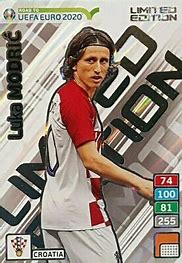 Group D: Scotland (1) 1 – 3 (1) Croatia
Group D: Scotland (1) 1 – 3 (1) Croatia Group B: Russia (0) 1 – 4 (1) Denmark
Group B: Russia (0) 1 – 4 (1) Denmark Group B: Finland (0) 0 – 2 (0) Belgium
Group B: Finland (0) 0 – 2 (0) Belgium Group C: Ukraine (0) 0 – 1 (1) Austria
Group C: Ukraine (0) 0 – 1 (1) Austria Goal of the round: Nothing quite to match Patrik Schik’s first-round effort this time out, though there were a couple of well-worked goals, including both of Wales’ goals against Turkey, Ronaldo’s tap-in after a perfect counter-attack against Germany and Kevin de Bruyne’s beautiful set-up for Thorgan Hazard. De Bruyne went one better with his winning strike against the Danes, but arguably Ivan Perisic’s strike against Croatia was the pick of the bunch. And on the subject of goals, both Patrick Schick and Cristiano Ronaldo picked up another goal apiece, to take their tallies to three each, but there’s a clear frontrunner for the Golden Boot at the moment – own goals. There had only been nine own goals in Euros history prior to this tournament, with the most at one tournament being the three scored in 2016. However, five own goals – over half of the total previously scored – have already been registered in the first two rounds of this year’s edition – including the opening goal of the tournament – with Portugal’s Ruben Dias and Raphael Guerreiro having the dubious honour of scoring two own goals in a single match for the first time in the tournament’s history. On a more positive note, Ronaldo’s third goal of the campaign saw him increase his Euros goals tally to 12 and edge just two away from Ali Daei’s international record, whilst this was also his 19th goal at World Cup and Euro Championships, equalling Miroslav Klose’s record. With a tricky match against France to close their group-stage account and keep their Euros ambitions alive, could Wednesday’s encounter be Ronaldo’s swansong at this tournament?
Goal of the round: Nothing quite to match Patrik Schik’s first-round effort this time out, though there were a couple of well-worked goals, including both of Wales’ goals against Turkey, Ronaldo’s tap-in after a perfect counter-attack against Germany and Kevin de Bruyne’s beautiful set-up for Thorgan Hazard. De Bruyne went one better with his winning strike against the Danes, but arguably Ivan Perisic’s strike against Croatia was the pick of the bunch. And on the subject of goals, both Patrick Schick and Cristiano Ronaldo picked up another goal apiece, to take their tallies to three each, but there’s a clear frontrunner for the Golden Boot at the moment – own goals. There had only been nine own goals in Euros history prior to this tournament, with the most at one tournament being the three scored in 2016. However, five own goals – over half of the total previously scored – have already been registered in the first two rounds of this year’s edition – including the opening goal of the tournament – with Portugal’s Ruben Dias and Raphael Guerreiro having the dubious honour of scoring two own goals in a single match for the first time in the tournament’s history. On a more positive note, Ronaldo’s third goal of the campaign saw him increase his Euros goals tally to 12 and edge just two away from Ali Daei’s international record, whilst this was also his 19th goal at World Cup and Euro Championships, equalling Miroslav Klose’s record. With a tricky match against France to close their group-stage account and keep their Euros ambitions alive, could Wednesday’s encounter be Ronaldo’s swansong at this tournament? Standout player performance: If ever a substitute changed a team’s fortunes, it was surely Kevin de Bruyne, who was introduced in the second-half when the Red Devils were 1-0 against Denmark and promptly cancelled out the deficit by calmly setting up Hazard. And just quarter of an hour later, he turned the game on its head with a beautifully struck shot to ease Belgium into the lead and through to the Round of 16. He exemplified the term ‘game-changer’. However, for me, Leonardo Spinazzola has been a revelation. A right-footed wing-back, he’s played the role to perfection on the front foot, always offering an outlet down the wing and often the furthest forward in the attack. Admittedly, he hasn’t been tested particularly defensively, but, as they say, attack is the best form of defence, and they don’t come more attacking in the wing-back role than Leonardo Spinazzola. Now 28, Spinazzola may just be at his peak, although if Chiellini and Bonucci are anything to go by, he should have another good 6–8 years yet.
Standout player performance: If ever a substitute changed a team’s fortunes, it was surely Kevin de Bruyne, who was introduced in the second-half when the Red Devils were 1-0 against Denmark and promptly cancelled out the deficit by calmly setting up Hazard. And just quarter of an hour later, he turned the game on its head with a beautifully struck shot to ease Belgium into the lead and through to the Round of 16. He exemplified the term ‘game-changer’. However, for me, Leonardo Spinazzola has been a revelation. A right-footed wing-back, he’s played the role to perfection on the front foot, always offering an outlet down the wing and often the furthest forward in the attack. Admittedly, he hasn’t been tested particularly defensively, but, as they say, attack is the best form of defence, and they don’t come more attacking in the wing-back role than Leonardo Spinazzola. Now 28, Spinazzola may just be at his peak, although if Chiellini and Bonucci are anything to go by, he should have another good 6–8 years yet. Newcomers: I can’t mention newcomers without mentioning Billy Gilmour. Named ‘Star of the Match’ (a moniker I’m not even going to go into right now) against England, Gilmour once again proved his quality and maturity as he has done every time he’s stepped onto the pitch in the last twelve months. Despite being only 20, his schooling with the likes of Kante and Jorginho clearly shows, and his battle against team-mate Mason Mount was one of the highlights of the England-Scotland match. For me, though, Denzel Dumfries of the Netherlands, who has been named ‘Star of the Match’ (I know, I know) in both of the Oranje’s matches, has been mightily impressive, starring at right-back but scoring in both of the opening fixtures – and in scoring in his first two Euros games, he matched the feat that has only ever been achieved by one other player – Ruud van Nistelrooy – and again, I reiterate, he’s a right-back. Aged just 22, he’s already making waves, and I’m sure the Premier League scouts are out in force to prise him away from PSV. And when it comes to youngsters, Jude Bellingham’s reign as the youngest ever player at the Euros was over almost as soon as it began with Poland’s Kacper Kozlowski taking the record when he was introduced as a sub against Spain, aged 17 years and 246 days. Anyone feeling old yet?
Newcomers: I can’t mention newcomers without mentioning Billy Gilmour. Named ‘Star of the Match’ (a moniker I’m not even going to go into right now) against England, Gilmour once again proved his quality and maturity as he has done every time he’s stepped onto the pitch in the last twelve months. Despite being only 20, his schooling with the likes of Kante and Jorginho clearly shows, and his battle against team-mate Mason Mount was one of the highlights of the England-Scotland match. For me, though, Denzel Dumfries of the Netherlands, who has been named ‘Star of the Match’ (I know, I know) in both of the Oranje’s matches, has been mightily impressive, starring at right-back but scoring in both of the opening fixtures – and in scoring in his first two Euros games, he matched the feat that has only ever been achieved by one other player – Ruud van Nistelrooy – and again, I reiterate, he’s a right-back. Aged just 22, he’s already making waves, and I’m sure the Premier League scouts are out in force to prise him away from PSV. And when it comes to youngsters, Jude Bellingham’s reign as the youngest ever player at the Euros was over almost as soon as it began with Poland’s Kacper Kozlowski taking the record when he was introduced as a sub against Spain, aged 17 years and 246 days. Anyone feeling old yet?
 England: The concerns going into the tournament for England were all about defence and how on earth the Three Lions would cope without Harry Maguire. Blessed with perhaps the greatest array of attacking talent in a generation, the only questions about England’s front line was how to fit them all in. However, two games down and that has totally switched. The defence, marshalled it has to be said by Harry Maguire’s replacement Tyrone Mings, has kept two clean sheets and been largely untroubled, whilst a four-pronged attack has registered just one goal and didn’t record a single shot on target in the first half against Scotland. It felt as if this match brought England crashing back down to earth, against a Scotland side who were resolute and determined but who rank some forty places below their Auld Enemy. In many ways, it was a sort of throwback, an old-fashioned tussle of yore, with a few more multicoloured boots than in the past. It wasn’t particularly pretty, the good old Blighty weather didn’t let the side down, and the first twenty-five minutes was more about the foul count than the pass count, with some proper duels between Mings and Stones and Adams and Dykes, and Mason Mount and Billy Gilmour who seemed to forget they’re Chelsea teammates. Mount and Rice were arguably the best of a disappointing bunch, with another solid display by Mings and Jordan Pickford putting on a good performance. With one match to go, England’s fate will be decided against the Czech Republic and whilst it’s not all doom and gloom, there is definitely need for improvement, and maybe it’s time for a change to personnel and shape.
England: The concerns going into the tournament for England were all about defence and how on earth the Three Lions would cope without Harry Maguire. Blessed with perhaps the greatest array of attacking talent in a generation, the only questions about England’s front line was how to fit them all in. However, two games down and that has totally switched. The defence, marshalled it has to be said by Harry Maguire’s replacement Tyrone Mings, has kept two clean sheets and been largely untroubled, whilst a four-pronged attack has registered just one goal and didn’t record a single shot on target in the first half against Scotland. It felt as if this match brought England crashing back down to earth, against a Scotland side who were resolute and determined but who rank some forty places below their Auld Enemy. In many ways, it was a sort of throwback, an old-fashioned tussle of yore, with a few more multicoloured boots than in the past. It wasn’t particularly pretty, the good old Blighty weather didn’t let the side down, and the first twenty-five minutes was more about the foul count than the pass count, with some proper duels between Mings and Stones and Adams and Dykes, and Mason Mount and Billy Gilmour who seemed to forget they’re Chelsea teammates. Mount and Rice were arguably the best of a disappointing bunch, with another solid display by Mings and Jordan Pickford putting on a good performance. With one match to go, England’s fate will be decided against the Czech Republic and whilst it’s not all doom and gloom, there is definitely need for improvement, and maybe it’s time for a change to personnel and shape. The European Championships are held every four years, in the even years between World Cups, and is the pinnacle of the national competition for members of UEFA. French Football Federation’s Secretary-General Henri Delaunay had first muted the idea for such a tournament back in 1927, but it was not to see the light of day until 1958 when seventeen countries entered the qualifiers.
The European Championships are held every four years, in the even years between World Cups, and is the pinnacle of the national competition for members of UEFA. French Football Federation’s Secretary-General Henri Delaunay had first muted the idea for such a tournament back in 1927, but it was not to see the light of day until 1958 when seventeen countries entered the qualifiers.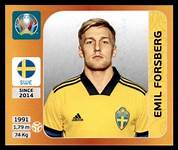 Group E: Sweden (0) 1 – 0 (0) Slovakia
Group E: Sweden (0) 1 – 0 (0) Slovakia Group D: Croatia (0) 1 – 1 (1) Czech Republic
Group D: Croatia (0) 1 – 1 (1) Czech Republic Group D: England (0) 0 – 0 (0) Scotland
Group D: England (0) 0 – 0 (0) Scotland There have been few more inspirational footballers in recent years than Marcus Rashford. On the pitch, footballers the world over continue to inspire young fans, and off the pitch, many of them make significant contributions too, although often behind the scenes. But Marcus Rashford has stepped up in a way that truly deserves the title of ‘inspirational’, making a real difference to the lives of young people through his food poverty and school meals campaigns. And he’s not stopping there, with a new book, You Are A Champion, aimed at empowering, uplifting and inspiring children and young adults – and some not so young adults too!
There have been few more inspirational footballers in recent years than Marcus Rashford. On the pitch, footballers the world over continue to inspire young fans, and off the pitch, many of them make significant contributions too, although often behind the scenes. But Marcus Rashford has stepped up in a way that truly deserves the title of ‘inspirational’, making a real difference to the lives of young people through his food poverty and school meals campaigns. And he’s not stopping there, with a new book, You Are A Champion, aimed at empowering, uplifting and inspiring children and young adults – and some not so young adults too! Group C: Ukraine (2) 2 – 1 (0) North Macedonia
Group C: Ukraine (2) 2 – 1 (0) North Macedonia Group B: Denmark (1) 1 – 2 (0) Belgium
Group B: Denmark (1) 1 – 2 (0) Belgium Group C: Netherlands (0) 0 – 0 (0) Austria
Group C: Netherlands (0) 0 – 0 (0) Austria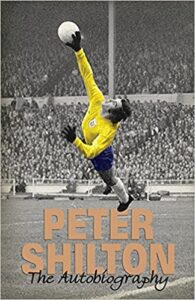 GK: Peter Shilton – The Autobiography/Saved – England’s record appearance maker, Peter Shilton won some 125 caps across a career spanning two decades. He represented England at five major tournaments, including Euro 1980 and 1988 and the 1982, 1986 and 1990 World Cup, and shares the record for most World Cup clean sheets (10) with Fabien Barthez. Peter Shilton’s domestic career took in some 11 teams, including Leicester City, Stoke City and Notts Forest. His forthcoming second autobiography, Saved, to be published in September, will reflect on his struggle with gambling.
GK: Peter Shilton – The Autobiography/Saved – England’s record appearance maker, Peter Shilton won some 125 caps across a career spanning two decades. He represented England at five major tournaments, including Euro 1980 and 1988 and the 1982, 1986 and 1990 World Cup, and shares the record for most World Cup clean sheets (10) with Fabien Barthez. Peter Shilton’s domestic career took in some 11 teams, including Leicester City, Stoke City and Notts Forest. His forthcoming second autobiography, Saved, to be published in September, will reflect on his struggle with gambling. Def: Rio Ferdinand – Rio: My Story/Rio: My Decade as a Red/#2Sides – My Autobiography/Thinking Out Loud – With no autobiography by arguably England’s best ever defender, Bobby Moore, Rio Ferdinand steps in as England’s second-most capped central defender (behind Bobby Moore), with some 81 caps and 3 goals. Featuring for England from 1997 through to 2011, Ferdinand was included in three World Cup squads, as well as Euro 2008. Domestically, he won the Premier League, League Cup, Community Shield, Champions League and Club World Cup. His most recent book was published in 2017.
Def: Rio Ferdinand – Rio: My Story/Rio: My Decade as a Red/#2Sides – My Autobiography/Thinking Out Loud – With no autobiography by arguably England’s best ever defender, Bobby Moore, Rio Ferdinand steps in as England’s second-most capped central defender (behind Bobby Moore), with some 81 caps and 3 goals. Featuring for England from 1997 through to 2011, Ferdinand was included in three World Cup squads, as well as Euro 2008. Domestically, he won the Premier League, League Cup, Community Shield, Champions League and Club World Cup. His most recent book was published in 2017. MF: Bobby Charlton – My Manchester United Years/My England Years/My Life in Football/1966: My World Cup Story – One of England’s 1966 heroes, Bobby Charlton won the Ballon d’Or in the same year and was also named FWA Footballer of the Year. He sits seventh on the list of appearances for England, with 106, and second on the list of top goal-scorers, having notched 49 in his career. A noted member of the Busby Babes, Charlton made over 600 appearances for Manchester United and had a career spanning nearly 25 years. Charlton’s clutch of autobiographies cover his impressive career, with the latest charting that epic World Cup triumph.
MF: Bobby Charlton – My Manchester United Years/My England Years/My Life in Football/1966: My World Cup Story – One of England’s 1966 heroes, Bobby Charlton won the Ballon d’Or in the same year and was also named FWA Footballer of the Year. He sits seventh on the list of appearances for England, with 106, and second on the list of top goal-scorers, having notched 49 in his career. A noted member of the Busby Babes, Charlton made over 600 appearances for Manchester United and had a career spanning nearly 25 years. Charlton’s clutch of autobiographies cover his impressive career, with the latest charting that epic World Cup triumph. MF: Kevin Keegan – My Autobiography/My Life in Football – The only English footballer to have won the Ballon d’Or twice, Kevin Keegan captained England at Italy 1980. However, with England missing out on both the 1974 and 1978 World Cups, Keegan featured only in Spain 1982, but briefly due to injury. Across his career, Keegan won 63 caps and scored 21 goals, whilst domestic success came most notably at Liverpool. Following management spells with Newcastle and Fulham, Keegan stepped into the England role for one year. His second autobiography was published in 2018.
MF: Kevin Keegan – My Autobiography/My Life in Football – The only English footballer to have won the Ballon d’Or twice, Kevin Keegan captained England at Italy 1980. However, with England missing out on both the 1974 and 1978 World Cups, Keegan featured only in Spain 1982, but briefly due to injury. Across his career, Keegan won 63 caps and scored 21 goals, whilst domestic success came most notably at Liverpool. Following management spells with Newcastle and Fulham, Keegan stepped into the England role for one year. His second autobiography was published in 2018.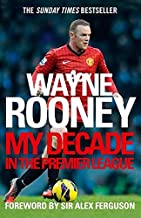 Striker: Wayne Rooney – The Way It Is/My Decade in the Premier League – Wayne Rooney holds the record as both England’s youngest ever goalscorer and the Three Lions’ top scorer, having bagged 53 goals in 120 appearances – whilst sitting second in the most caps chart. His England career spanned some 15 years, including appearances at Euro 2004, 2012 and 2016, and World Cup 2006, 2010 and 2014. Domestically, he holds the record as Manchester United’s top goalscorer, with 253 goals to his name, and is one of only two English players to have won the Premier League, FA Cup, Champions League, League Cup, Europa League and Club World Cup. His second autobiography was published in 2012.
Striker: Wayne Rooney – The Way It Is/My Decade in the Premier League – Wayne Rooney holds the record as both England’s youngest ever goalscorer and the Three Lions’ top scorer, having bagged 53 goals in 120 appearances – whilst sitting second in the most caps chart. His England career spanned some 15 years, including appearances at Euro 2004, 2012 and 2016, and World Cup 2006, 2010 and 2014. Domestically, he holds the record as Manchester United’s top goalscorer, with 253 goals to his name, and is one of only two English players to have won the Premier League, FA Cup, Champions League, League Cup, Europa League and Club World Cup. His second autobiography was published in 2012. Manager: Bobby Robson – An Autobiography/Bobby Robson: An Englishman Abroad/Farewell but not Goodbye/My Kind of Toon – Whilst it was Alf Ramsey who led England to World Cup success, it was Bobby Robson who oversaw their best post-World Cup campaign, prior to Gareth Southgate’s arrival, leading the Three Lions to the semi-finals of Italia 90. He was at the helm for eight years, winning some 47 of his 95 games in charge, and led England at Mexico 1986 and Euro 1988. As a player, he represented England 20 times, scoring 4 goals, and had a successful managerial career at Ipswich, Barcelona and notably his hometown of Newcastle. As well as a number of autobiographies, Harry De Cosemo’s Black and White Knight was published earlier this year.
Manager: Bobby Robson – An Autobiography/Bobby Robson: An Englishman Abroad/Farewell but not Goodbye/My Kind of Toon – Whilst it was Alf Ramsey who led England to World Cup success, it was Bobby Robson who oversaw their best post-World Cup campaign, prior to Gareth Southgate’s arrival, leading the Three Lions to the semi-finals of Italia 90. He was at the helm for eight years, winning some 47 of his 95 games in charge, and led England at Mexico 1986 and Euro 1988. As a player, he represented England 20 times, scoring 4 goals, and had a successful managerial career at Ipswich, Barcelona and notably his hometown of Newcastle. As well as a number of autobiographies, Harry De Cosemo’s Black and White Knight was published earlier this year. GK: Jim Leighton – In the Firing Line – With 91 caps to his name, Jim Leighton is the most capped Scottish goalkeeper, whilst sitting behind only Kenny Dalglish overall. His Scotland career spanned some 16 years from 1982 to 1998, which included two World Cups in 1986 and 1990. Whilst he missed out on Euro 92 and Euro 96, he returned as number one in the World Cup 1998 qualification and became the oldest player to play for Scotland aged 40 years and 78 days before David Weir surpassed this. His autobiography was published in 2000.
GK: Jim Leighton – In the Firing Line – With 91 caps to his name, Jim Leighton is the most capped Scottish goalkeeper, whilst sitting behind only Kenny Dalglish overall. His Scotland career spanned some 16 years from 1982 to 1998, which included two World Cups in 1986 and 1990. Whilst he missed out on Euro 92 and Euro 96, he returned as number one in the World Cup 1998 qualification and became the oldest player to play for Scotland aged 40 years and 78 days before David Weir surpassed this. His autobiography was published in 2000. Def: Willie Miller – The Miller’s Tale/The Don/Willie Miller’s Aberdeen Dream Team – Described by Sir Alex Ferguson as ‘the best penalty box defender in the world’, Willie Miller featured for Scotland from 1975 to 1989, amassing 65 caps and one goal. He competed at the 1986 World Cup, but injury meant he missed out in 1990 and ultimately had to retire. Miller’s domestic career was spent entirely at Aberdeen (with a brief loan spell at Peterhead), where he notched up a club record 560 appearances, as well as 21 goals, in a 19-year career. He has three books to his name.
Def: Willie Miller – The Miller’s Tale/The Don/Willie Miller’s Aberdeen Dream Team – Described by Sir Alex Ferguson as ‘the best penalty box defender in the world’, Willie Miller featured for Scotland from 1975 to 1989, amassing 65 caps and one goal. He competed at the 1986 World Cup, but injury meant he missed out in 1990 and ultimately had to retire. Miller’s domestic career was spent entirely at Aberdeen (with a brief loan spell at Peterhead), where he notched up a club record 560 appearances, as well as 21 goals, in a 19-year career. He has three books to his name.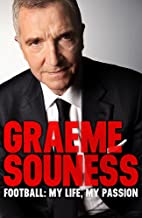 MF: Graeme Souness – No Half Measures/Graeme Souness: A Manager’s Diary/Souness: The Management Years/Graeme Souness – Football: My Life, My Passion – Across 12 years, Graeme Souness made 54 appearances for the Tartan Army, scoring four goals. In his time, he featured at three World Cups, including Argentina 1978, Spain 1982 and Mexico 1986. At club level, he made his name captaining a Liverpool side that dominated in the late 1970s/early 1980s before moving on to Sampdoria and later Rangers. A twenty-year managerial career ended at Newcastle in 2006 before Souness made the move into the media. His most recent autobiography was published in 2017.
MF: Graeme Souness – No Half Measures/Graeme Souness: A Manager’s Diary/Souness: The Management Years/Graeme Souness – Football: My Life, My Passion – Across 12 years, Graeme Souness made 54 appearances for the Tartan Army, scoring four goals. In his time, he featured at three World Cups, including Argentina 1978, Spain 1982 and Mexico 1986. At club level, he made his name captaining a Liverpool side that dominated in the late 1970s/early 1980s before moving on to Sampdoria and later Rangers. A twenty-year managerial career ended at Newcastle in 2006 before Souness made the move into the media. His most recent autobiography was published in 2017.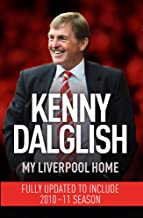 MF: Kenny Dalglish – My Autobiography/My Liverpool Home/Kenny Dalglish: Notes on a Season – As well as a legend of Celtic and Liverpool, Kenny Dalglish wrote his name into the Scottish history books, by being the most capped Scottish player, with 102 caps, and matching Denis Law as Scotland’s top goalscorer. During his career, he won the PFA Player’s Player of the Year and FWA Footballer of the Year twice, whilst being runner-up to Michel Platini for the Ballon d’Or in 1983. He was inducted to both the English and Scottish Football Halls of Fame. As well as two autobiographies, Dalglish’s Notes on a Season compiles his programmes notes from the 1989/90 season as Liverpool manager.
MF: Kenny Dalglish – My Autobiography/My Liverpool Home/Kenny Dalglish: Notes on a Season – As well as a legend of Celtic and Liverpool, Kenny Dalglish wrote his name into the Scottish history books, by being the most capped Scottish player, with 102 caps, and matching Denis Law as Scotland’s top goalscorer. During his career, he won the PFA Player’s Player of the Year and FWA Footballer of the Year twice, whilst being runner-up to Michel Platini for the Ballon d’Or in 1983. He was inducted to both the English and Scottish Football Halls of Fame. As well as two autobiographies, Dalglish’s Notes on a Season compiles his programmes notes from the 1989/90 season as Liverpool manager. Striker: Denis Law – The King: My Autobiography/Denis Law: My Life in Football – Joint top goalscorer in Scotland’s history, Denis Law’s tally of 30 is made all the more impressive having scored them in some 55 games for his country. Missing out on the 1958 World Cup, Law would feature in only the 1974 World Cup but was still named Scotland’s Golden Player – the most outstanding player of the past 50 years – by the Scottish Football Association. He won the Ballon d’Or in 1964 and was included in the PFA Team of the Century. His most recent autobiography was released in 2011.
Striker: Denis Law – The King: My Autobiography/Denis Law: My Life in Football – Joint top goalscorer in Scotland’s history, Denis Law’s tally of 30 is made all the more impressive having scored them in some 55 games for his country. Missing out on the 1958 World Cup, Law would feature in only the 1974 World Cup but was still named Scotland’s Golden Player – the most outstanding player of the past 50 years – by the Scottish Football Association. He won the Ballon d’Or in 1964 and was included in the PFA Team of the Century. His most recent autobiography was released in 2011.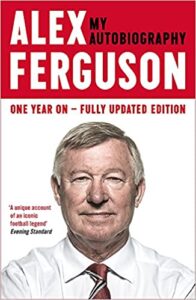 Manager: Alex Ferguson – Managing My Life/My Autobiography/Leading – With no autobiography available by the legendary Scottish manager Jock Stein, despite only a brief spell in charge of the national team, Sir Alex Ferguson is chosen as manager after his incredible success on the domestic front. With an unparalleled haul of team and individual awards, Ferguson stands head and shoulders above most other managers, Scottish or otherwise, in his achievements and legacy. His most recent book, Leading, published in 2015, gives an insight into his managerial philosophy.
Manager: Alex Ferguson – Managing My Life/My Autobiography/Leading – With no autobiography available by the legendary Scottish manager Jock Stein, despite only a brief spell in charge of the national team, Sir Alex Ferguson is chosen as manager after his incredible success on the domestic front. With an unparalleled haul of team and individual awards, Ferguson stands head and shoulders above most other managers, Scottish or otherwise, in his achievements and legacy. His most recent book, Leading, published in 2015, gives an insight into his managerial philosophy.